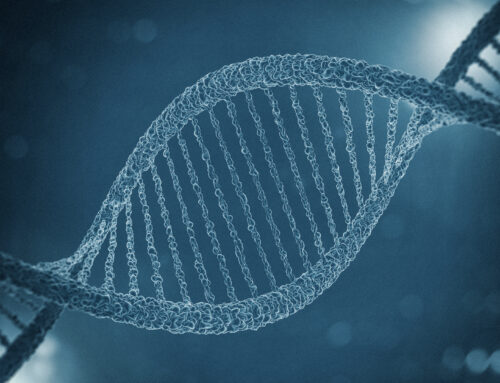
A genetics study done by doctors or scientists could fill up multiple pages of a peer-reviewed journal. But when that study finds its way onto the nightly news or your Facebook feed, you’ll often find the research distilled down to a catchy headline.
Sometimes, the lack of details and context can leave the public with a misleading or altogether wrong takeaway. Tips to combat the growing tide of scientific misinformation and improve health literacy include:
- Approach health news with a healthy dose of skepticism. Most articles highlight a study’s positive results. Consider challenging your own assumptions and placing findings in context. It is easier to write a story on a study with positive results, or results that agree with what scientists are trying to prove versus negative or inconclusive results
- Google the reported study. When mainstream media reports on a scientific study, they typically include a link to the scientific/academic article.
- Evaluate the scientific journal’s reputation. Not all scientific journals are created equal, use resources like the Scimago Journal & Country Ranks to gauge the journal’s standing in the academic community.
- Check the scientists’ credentials: Look up the scientist’s academic profile or their intuitional affiliation. Is it a well-regarded university? Do their affiliations reflect a conflict of interest?
- Search for similar studies. Studies that are replicated or show results consistent across many studies are more likely to be solid.
So many aspects of our lives – specifically, how we approach our health – rests on scientific research. News organizations tend to focus on bold and exciting headlines about provocative new studies, resulting in incomplete reporting and misinterpreted results.
However, we cannot fault non-scientists for all the click-bait junk science articles. A single scientific study can fool many people, even if conducted by highly-regarded scientists . An aspect of what makes science so powerful is the ability to self-correct false findings. This occurs when another group of scientists chooses to replicate an older study and do not reproduce the same findings as the initial study. Another way this happens is when the initial group of scientists self-identify a mistake in their study that was able to slip through the cracks of a peer-review. Unfortunately, redactions or corrections are not as well publicized as initial studies.
As advances in genetic research shed light on how genes influence our lives, a small but vocal majority are using scientific articles to reinforce incorrect understanding. A newly released PBS documentary, “American Masters: Decoding Watson,” explores the life and legacy of Dr. James Watson, one of the discoverers of DNA’s structure in the early 1950s. Watson, now 90, is a controversial figure because he insists genes influence traits in different racial groups, despite many recent genetic studies concluding otherwise.
It’d be easy to brush off the Nobel Prize winner’s tale as a story of an old man holding onto outdated ideas, but white supremacists are also twisting science to fit their ideologies. White supremacists have recently appropriated a study about a mutation of the gene responsible for digestion of lactose claiming that only those of European are able to digest milk into adulthood. However, had they read the academic article in its entirety they would have read that the mutation also occurred in other populations, individuals of East African ancestry.
Even with the best intentions, journalists and scientists may fail to accurately report the findings of a scientific study or article. Everyone, even winners of a Noble Prize, can misunderstand an article and spew incorrect information to the public. Scientific health literacy is a vital tool, start by questioning what you read and find better resources that can help you make informed decisions about you and your family’s health.
Consider the tools/resources below as reliable resources for health-related news:
– The Sarnoff Center’s Genetic Counselor is another available resource to help you answer genetics questions


